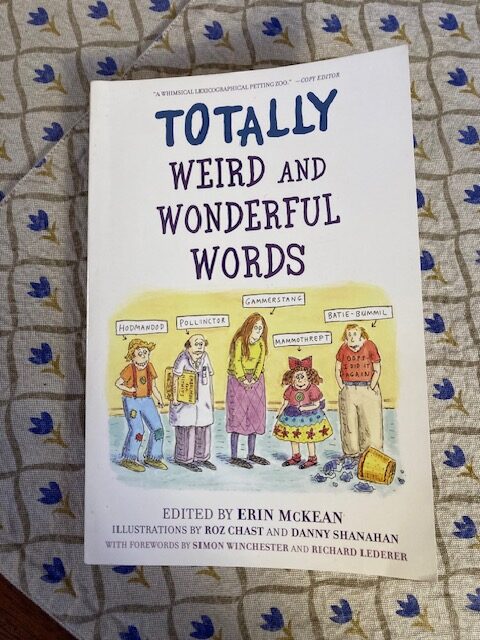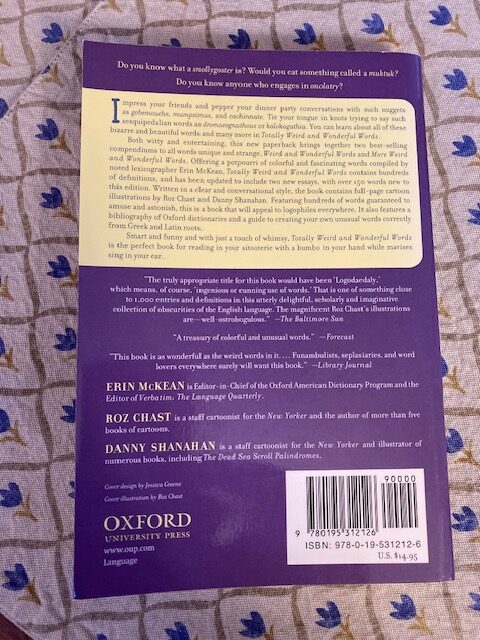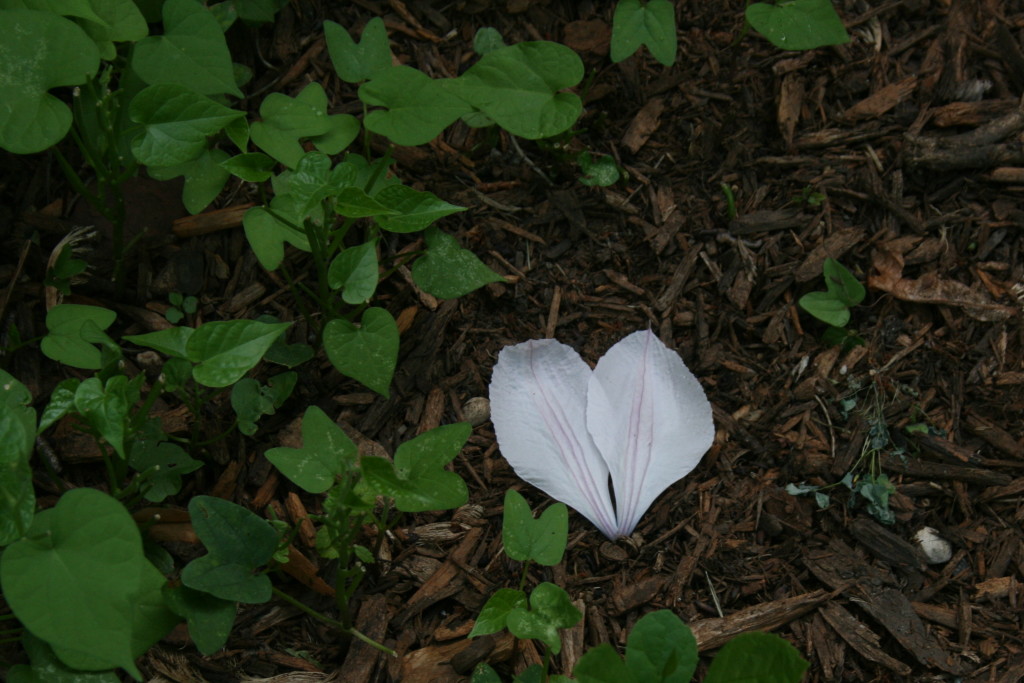

Who doesn’t love words? The sounds, the connotations, the denotations, the multifaceted meanings and pronunciations and histories, personal and otherwise? I often recall exactly when I learned a new word, either on the page or through the medium of the ear. That sense of expansion, juxtaposition, and possibility for use is one of the most delightful aspects of a being alive, I find. I guess my friends know that about me!
This offering from Oxford University Press (2006), Totally Weird and Wonderful Words, edited by Erin McKean, arrived on my own shelf late last year as a Christmas gift (Thank you, Beth!)The cover declares this gathering of unusual words as “A whimsical lexicographical petting zoo,” and I agree: this sums up not only the substance of this summoning of rarely encountered words but its spirit as well. It is the updated edition of an earlier title by lexicographer McKean that contains more words, all arranged alphbetically with etymologies, helpful pronunciation clues, a logophile’s bibliography of Oxford Press’s dictionary offerings, and a guide to coining one’s own candidates (correctly, from Greek and Latin roots), words that don’t exist but simply should.
The very first word I chanced upon late last fall was “lacustrine.” I still haven’t used it in a poem, but one day I will. (It means “associated with lakes”–the lakey version of “riparian” or “associated with rivers”–and a useful word for a poet who lives in the Land of 10,000 Lakes (really north of 14,000 at last count.) Until I see how to deploy it effectively, I shall keep it in my pocket like a polished stone.
Context for My Poem, “Moromancy”:

Today’s poem, “Moromancy”, takes an off-kilter look at human attempts at forecasting and was inspired by an entry in Erin McKean’s reference book (above). It means either “foolish divination” or “telling the future by observing the behavior of fools.” And yes, I had to add it to the spellchecker dictionary!
Until tomorrow, LESLIE

